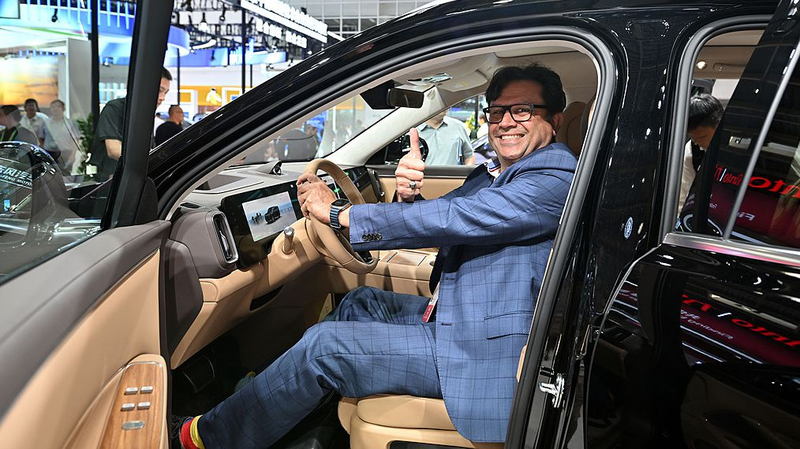At the ongoing China International Supply Chain Expo in Beijing, industry leaders underscored how the Chinese mainland’s maturing electric vehicle ecosystem, technological depth and industrial scale are shaping the next phase of global automotive production.
For Tesla, China is not just a market; it has become a core pillar of its global strategy. The Shanghai Gigafactory now produces one vehicle roughly every 30 seconds and boasts a 95 percent local parts integration rate for Model 3 and Model Y lines. As of June, output from this factory accounted for nearly half of Tesla’s global deliveries, with over three million vehicles rolling off its assembly lines since launch.
Beyond vehicle production, Tesla is expanding into energy storage with its first overseas Megapack factory in Shanghai. Officially launched in February 2025 and built in just nine months, the facility has an annual production capacity of 40 gigawatt-hours. Megapacks from this factory are now being exported across the Asia-Pacific, further embedding Tesla into China’s smart energy networks.
“China has the world’s most complete EV supply chain, with top-tier local suppliers and highly responsive manufacturing capabilities,” an unnamed Tesla spokesperson told Xinhua. They added that China’s large talent pool in AI, EV engineering and advanced manufacturing has become essential to Tesla’s localized R&D.
German auto supplier Bosch shared similar views at the expo. The company showcased localized innovations in electrified powertrains and driving assistance systems, emphasizing the rapid technology iteration taking place in China’s smart supply chain ecosystem.
With automakers like Tesla and Bosch anchoring their strategies in the Chinese mainland’s smart supply chains, the industry is betting on resilience, speed and scale to drive the next wave of automotive innovation.
Reference(s):
Global automakers eye deeper role in China's smart supply chains
cgtn.com




